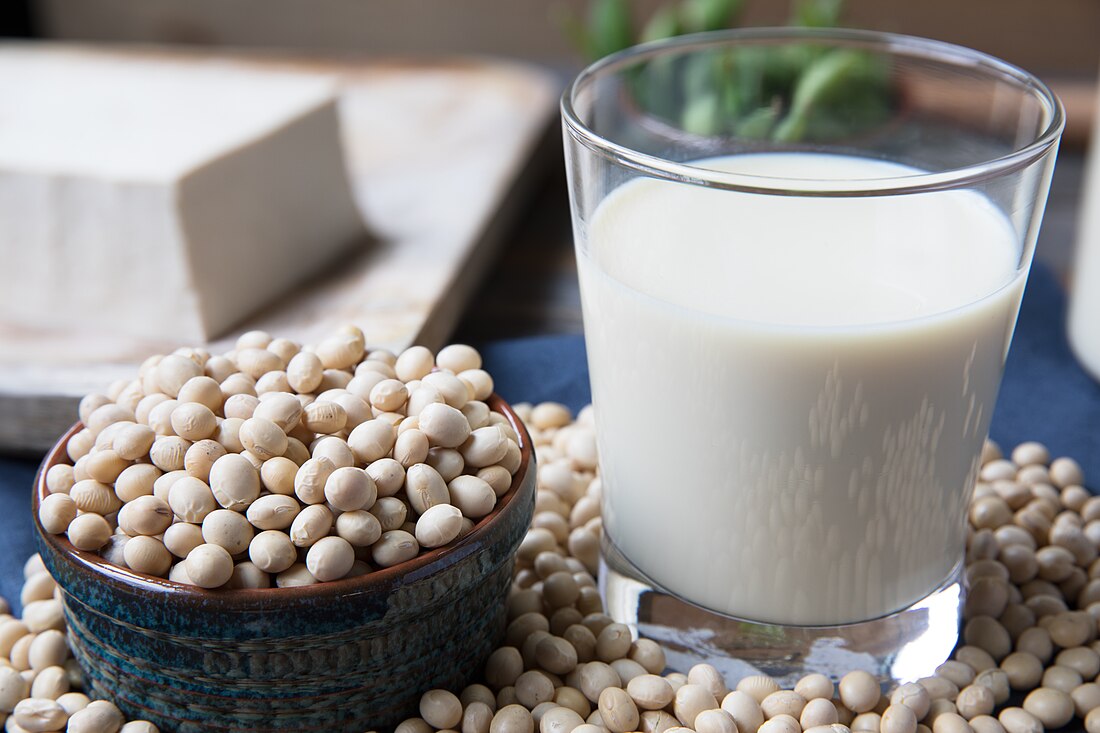Top Qs
Timeline
Chat
Perspective
Soy boy
Pejorative for men perceived as feminine From Wikipedia, the free encyclopedia
Remove ads
Soy boy is a pejorative term sometimes used in online communities to describe men perceived to be lacking masculine characteristics. The term bears many similarities and has been compared to the slang terms cuck (derived from cuckold), nu-male and low-T ("low testosterone") – terms sometimes used as insults for male femininity in the manosphere.[1][2][3]
This article needs more reliable medical references for verification or relies too heavily on primary sources. (June 2025) |

The term is based on the presence of the phytoestrogen isoflavone in soybeans, which has led some to claim that soy products feminize men who consume them, although there is a lack of evidence supporting the correlation between consumption of soy phytoestrogens and testosterone or estrogen levels[4] or sperm quality.[5]
Remove ads
Biology
Summarize
Perspective
This section needs to be updated. The reason given is: Needs citation to the latest studies, not mere mention of them. (June 2025) |
Soy products contain high amounts of phytoestrogens.[6][7] As they are structurally similar to estradiol (the major female sex hormone) and have activity at the estrogen receptor,[8] early research suggested that it may act as an endocrine disruptor that adversely affects health.[9][10] An article written in the 1970s claimed that soy could disrupt hormone balance which initially started the bad reputation.[11][unreliable source?] Since then, concerns have been raised that it may act as an endocrine disruptor that adversely affects health.[7] The Harvard School of Health, however, notes that "there are many factors that make it difficult to construct blanket statements about the health effects of soy";[12] in the late 2010s and early 2020s a sizeable amount of research and scientific reviews further debunked claims.[11]
It is unclear if phytoestrogens have any effect on male physiology, with conflicting results about the potential effects of isoflavones (a kind of phytoestrogen) originating from soy.[13] Some studies showed that isoflavone supplementation had a positive effect on sperm concentration, count, or motility, and increased ejaculate volume.[14][15] Sperm count decline and increasing rate of testicular cancers in the West may be linked to a higher presence of isoflavone phytoestrogens in the diet while in utero, but such a link has not been definitively proven.[16] Furthermore, while there is some evidence that phytoestrogens may affect male fertility, more recent reviews of available studies found no link,[17][18] and instead suggests that healthier diets such as the Mediterranean diet might have a positive effect on male fertility.[18] Several review studies have not found any effect of phytoestrogens on sperm quality[19] or reproductive hormone levels.[20][21] Neither isoflavones nor soy have been shown to affect male reproductive hormones in healthy individuals.[17][22]
Soy is rich in nutrients and likely to provide health benefits, especially when it replaces red or processed meat.[23] Avoidance of red and processed meat was found to lower risk of developing erectile dysfunction.[24][25] Higher soy intake is also associated with lower risk for prostate cancer.[26][27] Studies show that plant-based diets do not compromise muscular strength.[28]
Remove ads
Usage
The term is often used as an epithet by internet trolls. It often targets perceived vegans,[29][30] progressives, and other groups. The term has also been used in online debates about the fashion appeal of cargo shorts,[31] having a feminized and unathletic look, and an exaggerated smile called a "soy face" or "Soylent grin",[32][33] a reference to a meal replacement shake (itself named as a reference to the 1973 dystopian film Soylent Green).
Remove ads
See also
Look up soy boy in Wiktionary, the free dictionary.
References
Wikiwand - on
Seamless Wikipedia browsing. On steroids.
Remove ads
